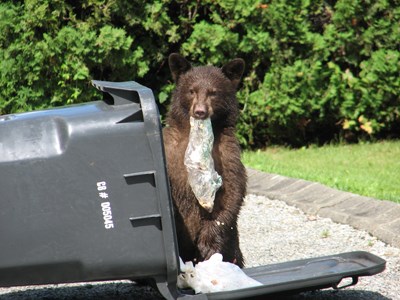The outpouring of grief at the killings of three bears in Port Moody shows how deeply Tri-City residents feel about nature and how desperate they are for a solution.
Here's one: Instead of blaming others, and conservation officers in particular, perhaps it's time for residents to take matters into their own hands.
Call a city bylaw officer if you see people leaving their trash or other attractants around, so warnings and fines can be meted out.
For the most part, people understand that neighbourhoods built in or next to forests are in bear territory and it's up to residents to make sure nothing is left outside for bears to get into. But the sad fact is, it just takes one or two homeowners or a single business to forget to close a door, lock up a waste cart or an industrial waste bin for the problem to begin.
That's because bears, once accustomed to the ease and taste of human trash, will become hooked — just like a drug addict on heroin. It's a simple fact of numbers and evolution, attractants such as leftovers and vegetables pack a greater caloric punch than a mouthful of berries, grubs or grass.
There's no point in blaming conservation officers for the problem and saying relocating bears is better than shooting them because that's not always the case. For example, if bears are already habituated to human garbage, they are likely to return — even from hundreds of kilometres away — and now they are even more desperate.
Sending cubs to Critter Care Wildlife Society in Langley instead of killing them is a good option and makes people feel better. (Critter Care relies on donations and doesn't get provincial funding, by the way, so help if you can.) And this spring, some 33 bears will be released into the wild, some of them from the Tri-Cities.
But how many of these bears will survive not having their mothers to teach them the ropes, and in forests already home to bears?
It's not that we want to promote vigilante action but neighbours and businesses working together to stop attractants from being made available to bears would make a difference and show that everyone is prepared to do their part.



